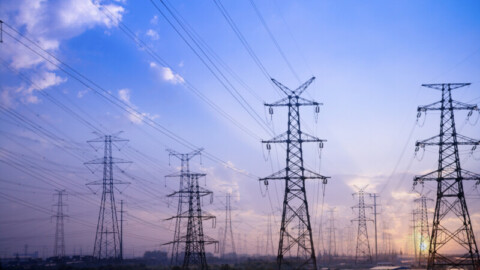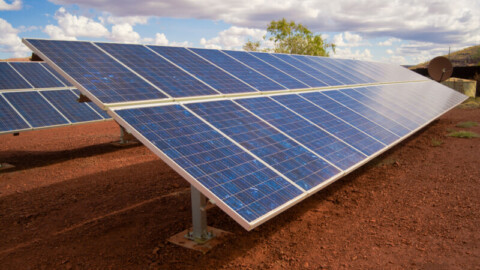The AEMC’s annual report on retail competition has found that average household consumers are now saving up to $760 a year on power bills due to strong competition in the market.
The AEMC’s report analyses whether energy shoppers are getting what they want from the market. It covers residential and small business consumers in retail electricity and gas markets in Queensland, NSW, ACT, Victoria, South Australia and Tasmania.
AEMC Chairman, John Pierce, said it was pleasing to see retailers were now moving towards simpler, more stable priced deals and away from the dodgy discounts and confusing offers that misled customers.
“Switching to better deals has reached a record high with nearly one in four customers changed retailers – and lots of those taking their business away from the big three retailers to sign-up with energetic smaller players.
“Increased competition has led to price cuts and large reductions in market concentration.
“There are big challenges to grapple with all across the supply chain as the power system transforms. But there are also opportunities driven by new technologies and consumer choices – just as we’ve seen in the past for other dramatically disrupted industries like telcos and mobile phones.
“Today we are seeing signs of a more engaged market that is responding positively to greater product innovation and bundling – and producing positive outcomes.
“The entry of global battery providers like Tesla and Sonnen partnering with local energy entrepreneurs to provide new deals on battery and solar PV options is also a welcome development.
“Dominant players in the market are under pressure and I call on them to respond positively as consumers get to reap the benefits of a market where there are more participants and more real choices targeted to the specific needs of individual households.”
The major trends identified in the 2019 retail energy competition review included:
- Median standing offer prices fell in all price deregulated jurisdictions (up to 4 per cent in south-east Queensland) and market offer fell even further (by up to 7 per cent in south-east Queensland) during 2018
- Competition increased with five new businesses entering the market
- Average fall in market concentration across the national electricity market (NEM) reached an all-time record
- The ‘big three’ retailers Origin, AGL and EnergyAustralia no longer hold the biggest market shares in south-east Queensland and South Australia
- Switching rates hit a record high of 24.4 per cent, with most switchers moving away from the big three retailers towards smaller players
- Victoria and south-east Queensland had the highest switching rates of 29 per cent
- Victoria and NSW had the highest gas switching rates of 21 per cent and 16 per cent respectively
Mr Pierce said there was considerable change ahead for Australia’s retail energy market with the re-introduction of retail electricity price regulation in Victoria, New South Wales, South Australia and south-east Queensland from 1 July 2019. With this comes a reference price for discounts which is designed to make shopping around easier.
“The Commission would work with governments to monitor the impacts of new policies and call out changes that disadvantage consumers or deny them access to the best possible offers.
“We will continue to help governments deliver consumer access to lower energy prices; and encourage retailers to keep striving to outdo each other on prices and innovative products and services,” Mr Pierce said.
The AEMC report makes a number of recommendations for consideration by governments, including measures to further enhance the ability of consumers to shop around by:
- Reducing switching times between retailers to 48 hours after the cooling off period (new rule currently under AEMC consideration)
- Restricting conditional discounts and requiring retailers to notify customers who have been on non-competitive standing offers for 12 months or more
- Enforcing a mandatory code of conduct for commercial comparator sites (recommendation to the Commonwealth Government)
- The AEMC is also recommending increased transparency of retail prices by publishing data on the number of customers on each market offer and monitor the impact on retailers and retail prices of the energy security board’s retailer reliability obligation
State by state analysis shows:
New South Wales
In NSW, the median market offer fell by between two per cent and four per cent across the three network areas from March 2018 to March 2019 in NSW. Customers on the median standing offer can save between $389 to $584 by switching to the minimum market offer depending on their network area in 2019.
Victoria
In Victoria, the median market fell by up to four per cent across the five network areas from March 2018 to March 2019. Customers on the median standing offer could save between $539 and $649 by switching to the minimum market offer depending on their network area.
Queensland
In Queensland, the median market fell by seven per cent across SE Qld from March 2018 to March 2019. Customers on the median standing offer could save $487 by switching to the minimum market offer across each network area.
South Australia
In South Australia, the median market offer fell by four per cent from March 2018 to March 2019. Customers on the median standing offer could save $760 by switching to the minimum market offer.
Tasmania
In Tasmania, retail electricity prices are regulated which is cited as a barrier to entry by potential new retailers. There has been very little change in market share although a new retailer, 1st Energy, arrived in February 2019.
ACT
In the ACT, there was a 19 per cent fall in the number of small ACT electricity customers on the standing offer in the year to December 2018, the biggest change in the NEM. This is likely to be a result of rising median standing offer prices, up by nine per cent. The median market offer fell by 0.3 per cent across network areas from March 2018 to March 2019 in the ACT.
















